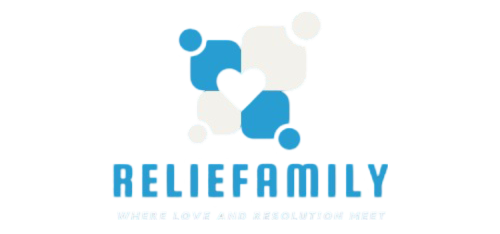Understanding the Joys and Challenges of Family Life:

Family life, with its multifaceted layers, holds a unique place in our hearts and society. As we delve into the diverse aspects of family, it becomes evident that the joy derived from family bonds is unparalleled. The sense of belonging, mutual support, and unconditional love that families offer is irreplaceable. Being part of a family often means having a network of individuals who cheer us on through our successes and offer solace during our tribulations.
However, it is essential to recognize that family life also comes with its share of challenges. Misunderstandings and conflicts are common, arising from miscommunication or differing perspectives. External factors such as demanding work schedules, academic pressures, and societal expectations can strain familial relationships. These challenges, although daunting, are an inherent part of the family dynamic, and navigating them requires patience, understanding, and deliberate effort.
This blog intends to shed light on both the joyous and challenging facets of family life. By exploring stories and experiences, we aim to provide valuable insights on strengthening family bonds. Emphasizing the significance of communication, we will discuss how open, honest dialogue can prevent and resolve conflicts. Empathy, too, plays a crucial role in building harmonious relationships, allowing family members to connect on a deeper emotional level by understanding each other’s feelings and perspectives.
Moreover, adaptability is a key component in maintaining family harmony. As families grow and evolve, being flexible and willing to adjust to new circumstances helps in overcoming hurdles brought about by external changes. By embracing adaptability, families can face challenges collectively, ensuring the preservation of their unity and strength.
Throughout this blog, we aim to provide practical advice and strategies to navigate the complexities of modern family dynamics. Whether it’s managing commitments or fostering stronger connections, our goal is to equip you with the tools for healthier, happier family relationships. Together, we will explore how recognizing both the joys and challenges of family life can cultivate an environment of mutual love, respect, and growth.
Practical Tips and Strategies for a Resilient Family Life:

Navigating the complexities of modern family dynamics often requires a blend of practical advice and well-thought-out strategies. Key to strengthening family relationships is the art of effective communication. Open, honest dialogues where each family member feels heard can significantly reduce conflicts. Employing active listening techniques, such as ensuring everyone gets a turn to speak and refraining from interrupting, can create a more harmonious environment.
Conflict management within a family setting is crucial for maintaining unity. Implementing structured dispute resolution methods, such as family meetings with clearly defined rules, can help address grievances before they escalate. It’s important to establish a system where grievances can be aired in a non-confrontational manner, thus fostering a spirit of problem-solving over confrontation.
Preventing family disintegration often revolves around nurturing the bonds that tie family members together. Engaging in regular family activities, whether it’s a shared meal, a weekend outing, or a collective hobby, builds a sense of togetherness and mutual enjoyment. It’s also beneficial to celebrate each other’s successes and milestones, creating a supportive atmosphere where everyone feels valued.
Another integral aspect of enhancing family dynamics is trust-building. Trust is fortified through consistency, honesty, and reliability. Simple actions like keeping promises and consistently showing up for family commitments can go a long way in building trust. Furthermore, family members should strive to be transparent about their feelings and intentions, which helps in reducing misunderstandings.
Balancing work and family life is another challenge many families face. Setting clear boundaries between work and personal time helps ensure that work stress does not spill over into family interactions. Families might benefit from setting collective goals that promote mutual support as each member works toward achieving their personal and professional aspirations.
Fostering a culture of mutual respect and understanding is essential for a resilient family. This includes acknowledging each other’s perspectives, showing appreciation for one another, and creating an environment where every family member feels respected and understood. Through these concerted efforts, families can create a robust unit capable of weathering the challenges of modern life, ensuring long-term cohesion and happiness

